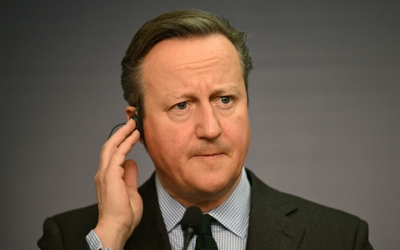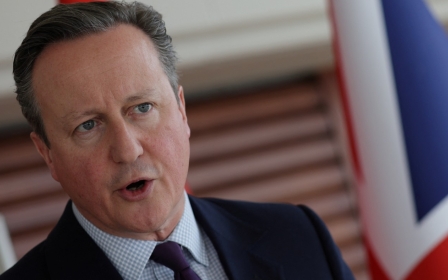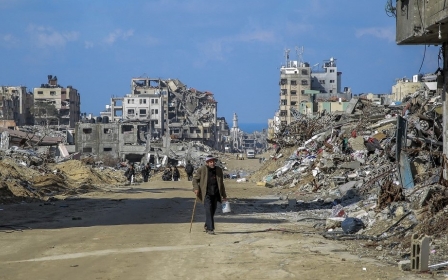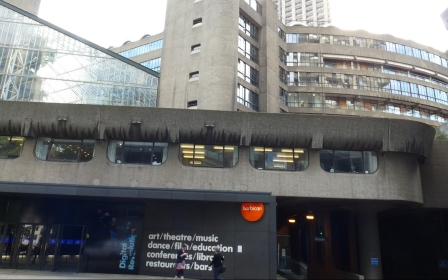House of Commons debate on Gaza ceasefire turns farcical amid condemnation of Israel's war
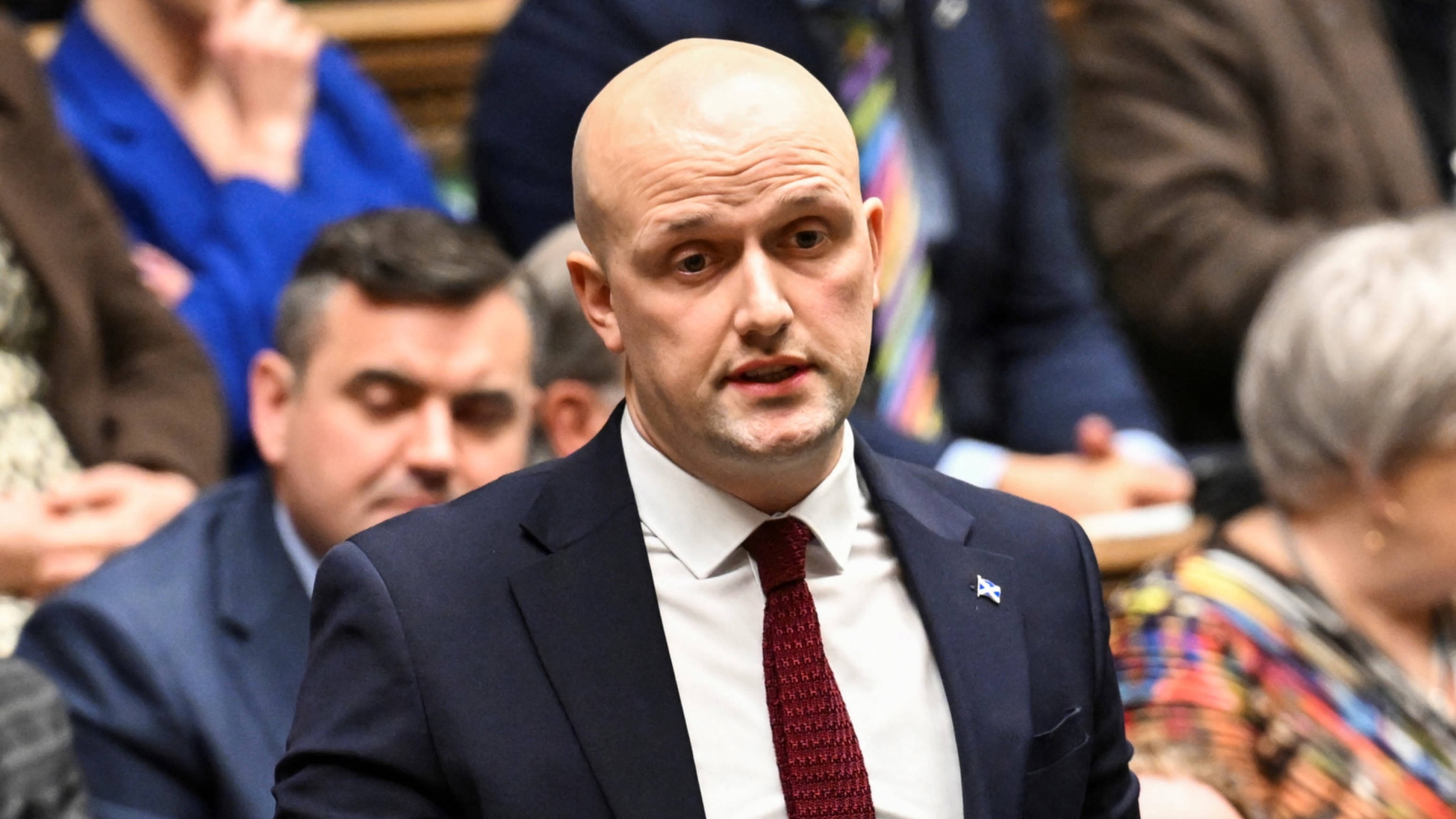
Scottish political leaders have condemned Israel for “ruthlessly exploiting” the principle of self-defence to “legitimise the slaughter of innocent civilians” in Gaza, as a UK parliamentary ceasefire debate descended into chaotic scenes on Wednesday.
The Scottish National Party (SNP), one of the opposition parties in the UK parliament, put forward a motion, which included condemnation of Israel for its "collective punishment" of the Palestinian people.
More than 29,000 Palestinians in Gaza have been killed during the Israel invasion, which came after the 7 October Hamas-led attacks that killed 1,140 people.
Brendan O'Hara, an SNP MP, said the House of Commons had the chance to be on "the right side of history" by voting to end the violence as the party called for an immediate stop to fighting.
He said: “No one would deny that Israel has the right to defend itself... What no country has the right to do is to lay siege to a civilian population, carpet bomb densely inhabited areas, drive people from their homes, erase an entire civilian infrastructure, and impose collective punishment involving cutting off water, electricity, food and medicine from civilians.”
New MEE newsletter: Jerusalem Dispatch
Sign up to get the latest insights and analysis on Israel-Palestine, alongside Turkey Unpacked and other MEE newsletters
And SNP lawmaker Anum Qaisar highlighted the UK's complicity in the war: “The F-35 bomber... is being used [to bomb Gaza]. Parts for this fighter jet, the laser targeting system and the weapons release system are made in British factories," Qaisar said.
"It is morally corrupt and sickens me to my core that the UK continues to sell arms to Israel.”
But the debate and potential vote on whether Britain should join international demands for a truce unravelled, as procedural wrangling and a bitter split between opposition parties saw many lawmakers walk out in protest.
'What no country has the right to do is to lay siege to a civilian population'
- Brendan O'Hara, MP
The leadership of the Labour Party, which is expected to win a general election due this year, felt uncomfortable at the motion's mention of "collective punishment" by Israel.
Faced with a likely rebellion by its MPs backing the SNP motion, Labour put forward its own amendment on Tuesday, which did not mention the phrase "collective punishment". Instead it stated that “Israel cannot be expected to cease fighting if Hamas continues with violence”.
Lisa Nandy, Labour shadow minister for international development, said on Wednesday before the debate: “We’ve seen during the course of this conflict that many people have called for Israel to lay down their arms and for Hamas to be able to continue to fight." The SNP motion made no such recommendation.
As the debate began at Wednesday lunchtime, Parliamentary Speaker Lindsay Hoyle said he would break with precedent and allow a vote on Labour’s amendment before the SNP’s motion, despite contradictory advice from officials.
Separate Labour sources told Middle East Eye that Hoyle, who is also a Labour MP and who visited Israel in November, was told by senior figures in his party that if he did not allow a vote on Labour’s amendment, he “wouldn’t be speaker after the general election”. The party has denied the allegations.
Amid chaotic scenes, SNP and Conservative MPs left the House of Commons in protest and the Labour amendment calling for an "immediate humanitarian ceasefire" passed without a vote. Hoyle later apologised.
In response the SNP's Westminster leader Stephen Flynn said: "I will take significant convincing that your position is not now intolerable." Fellow lawmakers from his party called on Hoyle to quit.
John McDonnell, Labour's former shadow chancellor, told Middle East Eye that the Labour front bench had been concerned that "if the government votes to defeat the Labour amendment, there will be a vote on the SNP motion".
Many Labour MPs and shadow cabinet members have faced protests in their constituencies for months demanding that they support a ceasefire in Gaza.
Husam Zomlot, the Palestinian ambassador to the UK, said that the events marked "British politics at its worst". "Politicians are trying to save themselves rather than saving an entire nation from genocide," he told LBC.
Condemning Israel
While polls show that most Britons support backing a ceasefire in Gaza, UK politicians have often shied away from this, preferring to emphasise Israel's "right to defend itself".
In a swipe at Labour's leadership, O'Hara said voting for a ceasefire “might actually help some of the UK’s political establishment – and those seeking to aspire to that position – locate their moral compass”.
He called for the House of Commons to demonstrate the same unity it had shown with Ukraine against Russian President Vladimir Putin, and to “stand together for those in Palestine that need our support”.
Returning from a British parliamentary trip to Sinai, Labour MP Sarah Champion said during the debate: “Nothing that has been reported braces you for the true scale of the horror in Gaza. We’re simply not getting accurate information about the levels of destruction and brutality."
David Lammy, Labour’s shadow foreign minister, said that “the time for a ceasefire has come”, and that the world needed to “salvage the hope of a two-state solution” in Israel and Palestine.
The shadow foreign minister said that an Israeli ground offensive in Rafah, the border area to which more than 1.5m Palestinians have been displaced, would be “a humanitarian disaster, a moral catastrophe and a strategic mistake”.
But the ill-feeling over how UK opposition parties had split was clear. Liberal Democrat MP Layla Moran, UK parliament's first MP of Palestinian descent, who has previously shared details of her family’s plight in Gaza, criticised “a lack of coordination on the opposition benches.
"Without a two-state solution on '67 borders, we are condemning both Israelis and Palestinians to reliving this nightmare over and over and over again," she said.
“In many respects, the ending of the violence in Gaza rests in the hands of the countries supplying the weapons to Israel,” said Mhairi Black, an SNP MP, who drew attention to the fact that David Cameron, now Britain's foreign secretary, had called for a ceasefire in Gaza in 2014.
Middle East Eye delivers independent and unrivalled coverage and analysis of the Middle East, North Africa and beyond. To learn more about republishing this content and the associated fees, please fill out this form. More about MEE can be found here.


